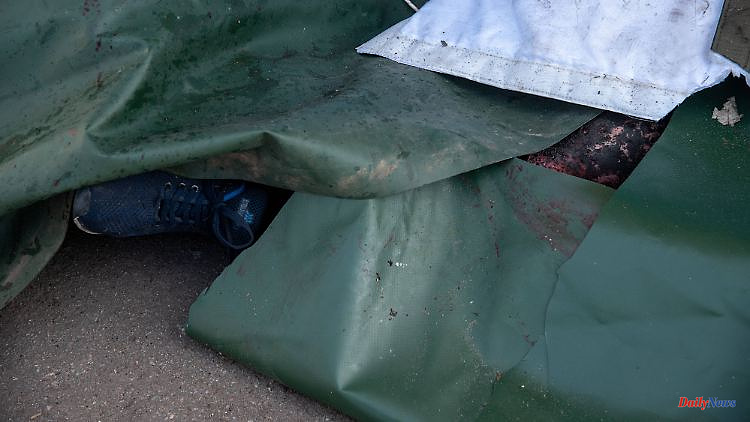On April 8, 2022, thousands of metal fragments hit the Kramatorsk train station, where hundreds of Ukrainians trying to flee are waiting. At least 58 people die and more than 100 are injured. After an investigation, Human Rights Watch now assumes a Russian war crime.
According to a report by the human rights organization Human Rights Watch (HRW), the rocket attack on the overcrowded Kramatorsk train station in Ukraine in April last year was carried out by Russian troops and must be classified as a war crime. "This attack constitutes a violation of the laws of war and a suspected war crime," HRW said in an investigation conducted with research group SITU.
HRW pinpointed Kunie in the Kharkiv region of north-eastern Ukraine, which was then under Russian control, as the likely launch site for the missile. Cluster munitions were used in the attack on the Kramatorsk train station, where hundreds of refugees were waiting for trains because of the Russian war of aggression against Ukraine. The release of the many pieces of ammunition killed at least 58 civilians and injured more than a hundred others. The Kramatorsk city administration speaks of 61 dead and more than 160 injured.
"Russia's use of a decidedly indiscriminate weapon at a known important evacuation center should be investigated and those responsible held accountable," HRW said.
According to HRW, the Totschka-U ballistic missile exploded high above the train station at 10:28 am on April 8 last year, releasing dozens of pieces of ammunition. These hit the ground, detonating, killing and injuring scores of people waiting at the station, including children and the elderly. A total of around 15,800 deadly metal splinters fell in the station and the surrounding area.
"Russia's unlawful and heinous attack on the Kramatorsk train station has killed and wounded civilians desperate to flee the fighting," said HRW's Richard Weir. "The devastating effects of cluster munitions on crowds should send a clear signal to the Russian armed forces to stop using these banned weapons."
According to HRW, both Russia and Ukraine have Tochka-U ballistic missiles equipped with a cluster munition warhead. Russia denies responsibility for attack on Kramatorsk train station. However, HRW's investigation revealed that Russian troops in the Kunie area had Tochtka submarine missiles at their disposal at the time of the attack and were launching attacks from the area at the time.
Cluster munitions are internationally banned. It releases dozens of smaller explosive devices into the air that spread over an area of hundreds of square meters, indiscriminately killing or injuring people. Last weekend, the Ukrainian side's demand for the delivery of cluster munitions from the West caused outrage.
According to HRW, it was in the city of Kramatorsk in the Donetsk region from May 14 to 24, 2022 to document the attack on the train station and its consequences. The HRW employees interviewed witnesses and evaluated photos and videos. After the recapture by the Ukrainian army, HRW also visited Kunie.












